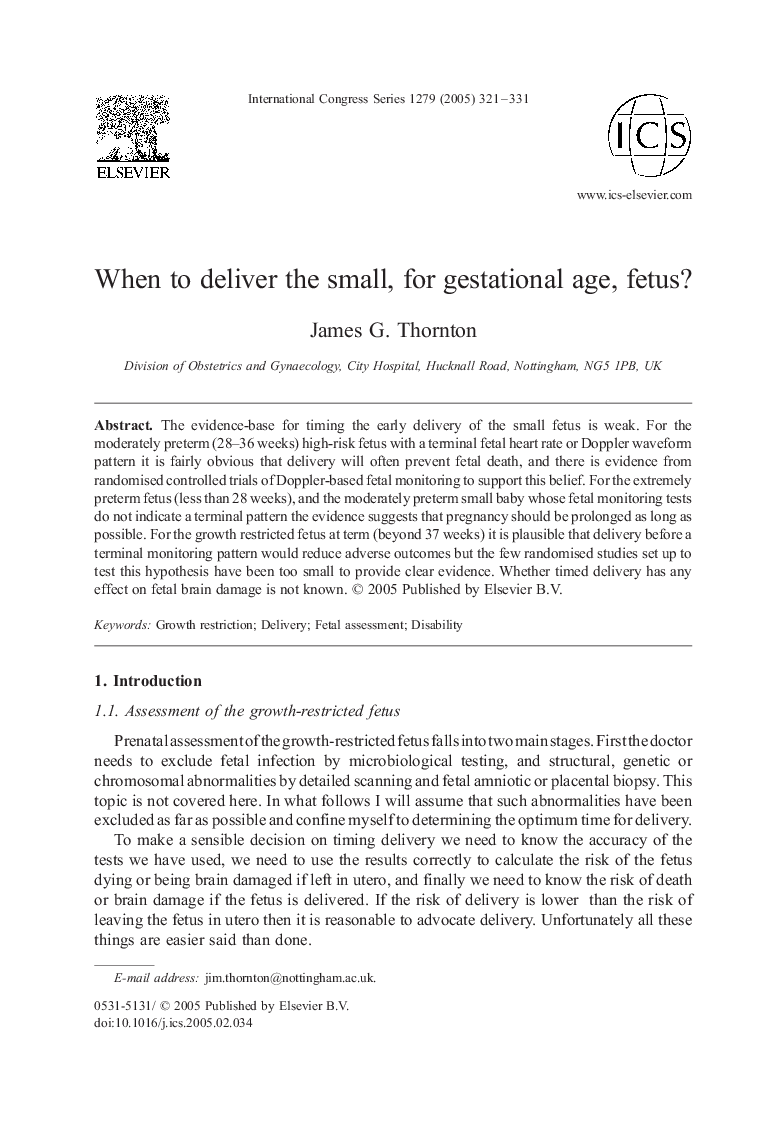| Article ID | Journal | Published Year | Pages | File Type |
|---|---|---|---|---|
| 9021992 | International Congress Series | 2005 | 11 Pages |
Abstract
The evidence-base for timing the early delivery of the small fetus is weak. For the moderately preterm (28-36 weeks) high-risk fetus with a terminal fetal heart rate or Doppler waveform pattern it is fairly obvious that delivery will often prevent fetal death, and there is evidence from randomised controlled trials of Doppler-based fetal monitoring to support this belief. For the extremely preterm fetus (less than 28 weeks), and the moderately preterm small baby whose fetal monitoring tests do not indicate a terminal pattern the evidence suggests that pregnancy should be prolonged as long as possible. For the growth restricted fetus at term (beyond 37 weeks) it is plausible that delivery before a terminal monitoring pattern would reduce adverse outcomes but the few randomised studies set up to test this hypothesis have been too small to provide clear evidence. Whether timed delivery has any effect on fetal brain damage is not known.
Related Topics
Life Sciences
Biochemistry, Genetics and Molecular Biology
Molecular Biology
Authors
James G. Thornton,
